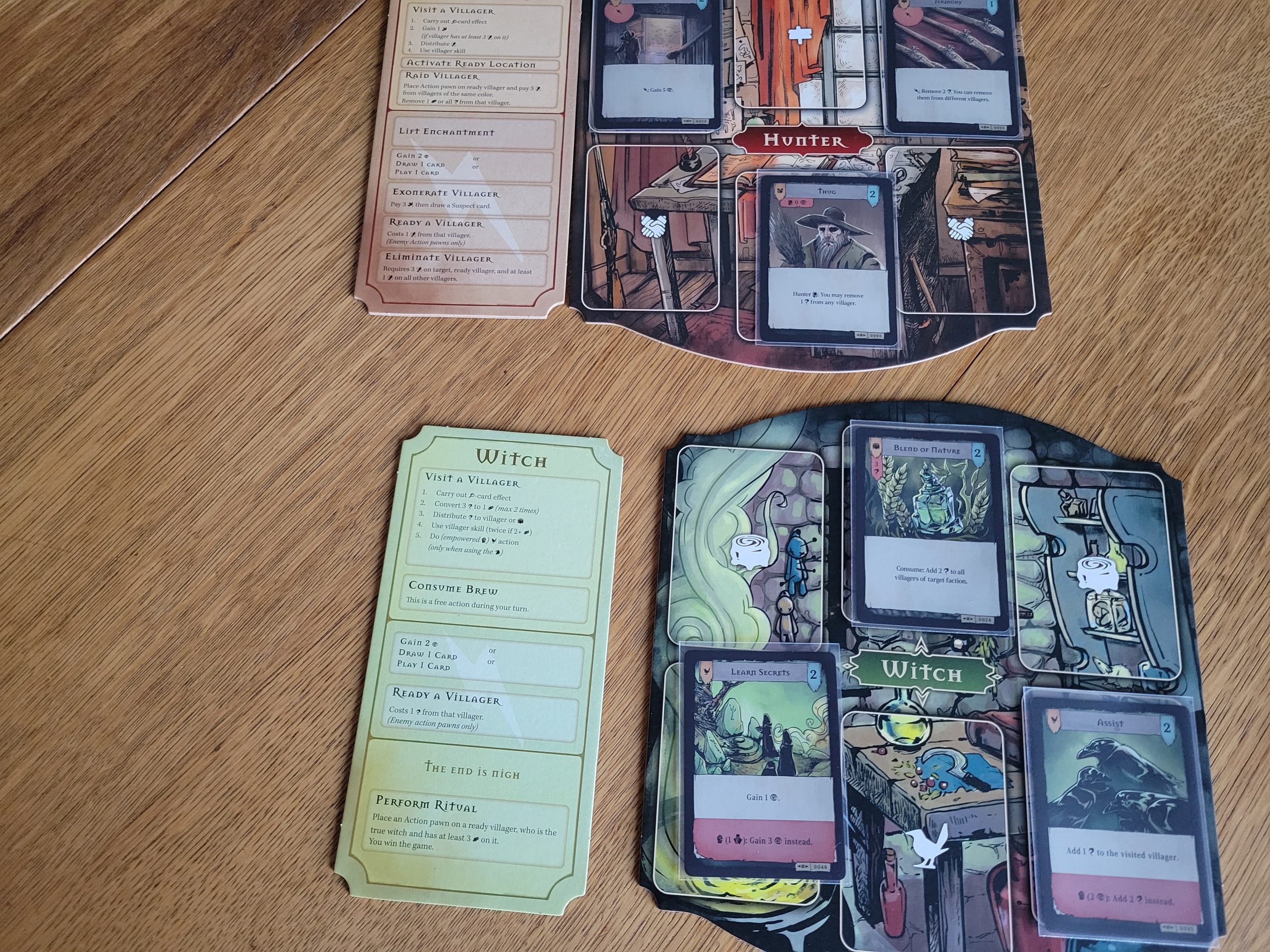I have rather stringent rules for when I choose to sleeve one of my games, and as a result, I can count on one hand the number of games in my 80+ game collection that are sleeved. Pretty much, a game’s got to require a lot of shuffling decks whose awkward sizes don’t lend themselves to it like Heat, or it’s a game that’ll never see another printing like Forbidden Stars. Pagan meets none of those requirements, so why did I sleeve it immediately? Scholars have yet to reach a consensus, but my theory is that it awakened my compulsive need to sleeve my card games, dormant since I quit Magic over a decade ago. I’ve reviewed plenty of excellent card games that I haven’t felt compelled to sleeve though, so believe me when I tell you that Pagan has the juice.
The beauty of Pagan is its foundational identity, an unholy marriage of the LCG format and Rebellion’s asymmetric rebel base win condition. I always wanted to like Rebellion, but found its unavoidable and honestly unfun combat detracted too much from the overall experience, so replacing that with cardplay that’s easy to understand, yet still interesting, immediately sparked my interest. Add in that the deduction game between the witch trying to get enough favor on themselves to win and the witch hunter trying to suss them out from all the other villagers is executed just about perfectly, sprinkle in the gothic theme, and I’m hooked.

In the base game at least, every game has the same list of villagers going down in a line between the players, allowing a visiting player to perform some variation of the three basic actions to gain influence (how you pay for cards) or draw or play a card, with the added bonuses of blocking your opponent from that villager on their turn and distributing the clues or secrets you’ll need to win. These actions actually have a wide range of efficiency, theoretically offset by the number of tokens the visitor gets to distribute. The real spice and game-to-game variance comes from the witch not being able to pick their secret identity, which is drawn at random at the beginning of the game. This leads to more straightforward games of second guessing just how straightforward you should be when the witch draws a villager with a great ability, since getting two of the three favor required for a win on a villager makes every action on them trigger twice. On the other hand, trying to justify to the hunter why you’re hoarding tokens on the doctor since you don’t get her two tokens distributed twice gets a bit more dicey. Learning your opponent and developing a bit of a meta is both incredibly important and comes quickly, as a witch can lure an overzealous hunter into wasting one of their two incorrect villager kills before immediate loss by stacking favor on a villager that the hunter had been building a clue to evidence engine on (I’ve never done this before). Simultaneously, the witch can’t afford to waste too much time on bluffs, as the hunter gets to turn in evidence to secretly draw villager cards and therefore know who the witch isn’t, eventually winning outright if they draw the whole deck instead of killing the witch before the witch successfully performs the ritual that wins them the game. There’s a great amount of interaction between the players’ cards and actions, too- if you really need to access a villager that your opponent has been hoarding, you’re free to spend an action and one of your tokens on said villager to free them up for your use, but then you’ve invested 2/3rd of your turn on that one guy, so maybe you wanna do something else? That’s where Pagan sings, in its innumerable paths that almost never contain the unquestionably optimal move.

The last thing I love about Pagan that I really don’t hear enough praise for in the hobby is its emergent narratives. It’s not extremely thematic, but there’s enough there that stories are being told every time you play. The time your hunter killed the mayor right off the bat based off how the witch was playing before drawing off the identity deck? That’s now the story of the wild man that showed up in town, murdered the mayor, and went on a paranoid killing spree. I love it when games give you the space to make these interpersonal legends that take on a life beyond their cardboard and plastic bits.

















